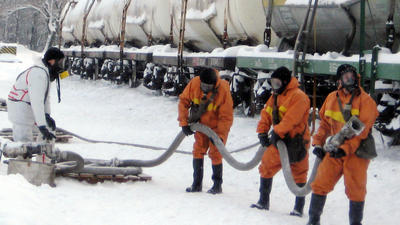-
Our work
-
Fields of work
- Arms control
- Border management
- Combating trafficking in human beings
- Conflict prevention and resolution
- Countering terrorism
- Cyber/ICT Security
- Democratization
- Economic activities
- Education
- Elections
- Environmental activities
- Gender equality
- Good governance
- Human rights
- Media freedom and development
- Migration
- National minority issues
- Policing
- Reform and co-operation in the security sector
- Roma and Sinti
- Rule of law
- Tolerance and non-discrimination
- Youth
- Field operations
- Projects
-
Meetings and conferences
- Summit meetings
- Review Conferences
- Ministerial Council meetings
- Plenary meetings of the Permanent Council
- Plenary Meetings of the Forum for Security Co-operation
- Security Review Conferences
- Annual Implementation Assessment Meetings
- Economic and Environmental Forum
- Economic and Environmental Dimension Implementation Meetings
- Human rights meetings
- Media conferences
- Cyber/ICT security conferences
- Conference of the Alliance against Trafficking in Persons
- Gender equality conferences
- Annual OSCE Mediterranean conferences
- Annual OSCE Asian conferences
- Partnerships
-
Fields of work
-
Countries
- All
-
Participating States
- Albania
- Andorra
- Armenia
- Austria
- Azerbaijan
- Belgium
- Belarus
- Bosnia and Herzegovina
- Bulgaria
- Canada
- Croatia
- Cyprus
- Czechia
- Denmark
- Estonia
- Finland – OSCE Chairpersonship 2025
- France
- Georgia
- Germany
- Greece
- Holy See
- Hungary
- Iceland
- Ireland
- Italy
- Kazakhstan
- Kyrgyzstan
- Latvia
- Liechtenstein
- Lithuania
- Luxembourg
- Malta
- Moldova
- Monaco
- Mongolia
- Montenegro
- The Netherlands
- North Macedonia
- Norway
- Poland
- Portugal
- Romania
- Russian Federation
- San Marino
- Serbia
- Slovakia
- Slovenia
- Spain
- Sweden
- Switzerland
- Tajikistan
- Türkiye
- Turkmenistan
- Ukraine
- United Kingdom
- United States of America
- Uzbekistan
- Asian Partners for Co-operation
- Mediterranean Partners for Co-operation
-
Structures and institutions
- Chairpersonship
-
Secretariat
- Secretary General
- Office of the Secretary General
- Conflict Prevention Centre
- Transnational Threats Department
- Office of the Special Representative and Co-ordinator for Combating Trafficking in Human Beings
- Office of the Co-ordinator of OSCE Economic and Environmental Activities
- Gender Issues Programme
- Opportunities for Youth
- Department of Human Resources
- Department of Management and Finance
- Office of Internal Oversight
- Documentation Centre in Prague
- Institutions
-
Field operations
- Presence in Albania
- Centre in Ashgabat
- Programme Office in Astana
- Programme Office in Bishkek
- Mission to Bosnia and Herzegovina
- Programme Office in Dushanbe
- Mission in Kosovo
- Mission to Moldova
- Mission to Montenegro
- Mission to Serbia
- Mission to Skopje
- Project Co-ordinator in Uzbekistan
- Closed field activities
- Parliamentary Assembly
- Court of Conciliation and Arbitration
- Organizational structure
- About us
Press release
OSCE removes threat posed by toxic rocket fuel component from south-west Ukrainian town, starts work at second site

- Date:
- Place:
- KALYNIVKA
- Source:
- Forum for Security Co-operation, OSCE Secretariat
- Fields of work:
- Environmental activities
KALYNIVKA, Ukraine, 26 January 2010 - The last train removing a highly toxic and volatile rocket fuel component from a storage site near the south-western Ukrainian town Kalynivka left today as part of an OSCE project that is set to remove the threat posed by the substance from all of Ukraine.
The train carrying the last of the 1,000 tonnes stored at the site will travel to specialized chemical plants in the Russian Federation, where the fuel component known as melange will be safely disposed of in a process that results in chemical products for civilian use, such as paint components.
The deteriorating containers holding melange posed a threat not only to Kalynivka, a town of 20,000, but also the nearby regional capital Vinnytsya, which has a population of 365,600 residents. Work has begun to clear a second site located just one kilometre from the village of Tsenzhiv and a few kilometres from the regional capital of the Ivano-Frankivsk region. Work at that site, which holds about 2,200 tonnes, is expected to take until late summer 2010.
"Now that the last trainload of melange has left Kalynivka, this toxic hazard is no longer a threat to local residents. From this moment on, nearby communities can enjoy a safer environment," said Mathew Geertsen, the manager of the project.
Melange was widely used in the armies of the Soviet Union, the Warsaw Pact and some other countries to propel short- and medium-range rockets.
Later stages of the project are envisioned to dispose of Ukraine's entire stock of melange, which comprises some 16,000 tonnes. The project, implemented by the OSCE Secretariat, is set to become the OSCE's largest donor-financed project so far.
A single major leak or accident involving melange can have a severe impact on biological life within a two-kilometre radius, and create a contaminated, high-risk zone within a 25-kilometre radius. If the substance comes into contact with anything organic, it causes spontaneous combustion.
The Czech Republic, Denmark, Finland, Germany, Norway, Spain, Poland, the Swedish International Development Co-operation Agency and Ukraine itself are financing the first phase of the project. Some of the donors for the first phase, as well as the United States, have pledged funds for later phases. Fund-raising for the project is under way among OSCE participating States.